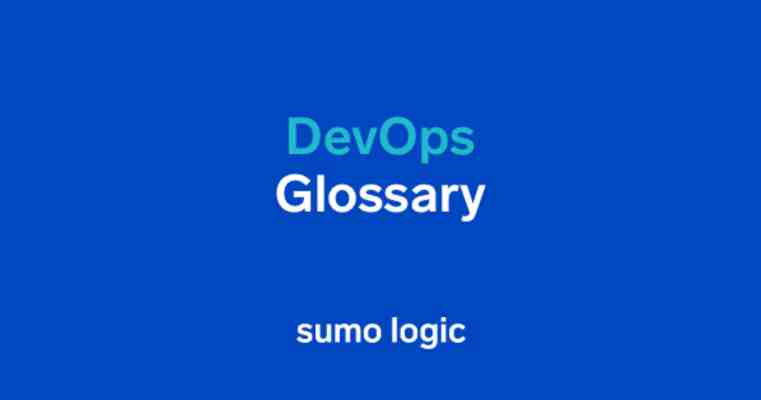LANCOM Management Cloud
Ein gut funktionierendes Netzwerk ist das Herz eines jeden Unternehmens.
Es aufzubauen und zu steuern ist jedoch eine hochkomplexe Angelegenheit. Zudem ist der Fachkräftemangel allgegenwärtig: qualifizierte Netzwerkexperten sind immer schwieriger zu finden. Gleichzeitig ist die traditionell manuelle Konfiguration zeitaufwändig, fehleranfällig und führt damit zu viel zu hohen Kosten.
Was wäre, wenn es eine intelligente, höhere Instanz gäbe, die das gesamte Netzwerk von zentraler Stelle aus automatisiert und steuert? Eine Art künstliche Intelligenz, die alle wichtigen Komponenten vernetzt, jederzeit dynamisch auf neue Anforderungen reagieren kann und dabei auch noch sicher ist.
Klingt wie ein Zukunftsszenario – ist es aber nicht.
What is Cloud Management?
What is Cloud Management? Cloud management is the process of maintaining oversight and administrative control of cloud computing products and services, whether deployed in public, private, or hybrid cloud environments. The practice of cloud management combines different software products and technologies together to provide a cohesive management strategy and process. IT organizations are increasingly choosing to reduce their up-front investments in IT infrastructure by deploying their applications into cloud environments. These environments offer on-demand availability of data storage and computing power that organizations need to handle high volumes of data and fluctuating or growing demand for application access and services. Today, there are three common deployment models for cloud computing services: Private Cloud - Private cloud infrastructure is operated solely for a single organization. It can be managed internally or by a third party. Private cloud systems can provide flexible storage capacity and computing power for different areas of business, but they lack the element of hands-off management that makes cloud computing an attractive economic model for leveraging IT infrastructure. Public Cloud - Public cloud services are delivered over a network that is open for public use. In this model, the IT infrastructure is owned by a private company (Amazon Web Services, Google, Microsoft or Oracle are popular providers) and members of the public can purchase or lease data storage or computing capacity as needed. Hybrid Cloud - Hybrid cloud environments are comprised of a combination of public and private cloud services from different providers. Organizations may want to keep some data on private cloud servers for privacy and security reasons, while leveraging public cloud applications at a lower price point for less sensitive information. When these public and private environments are interconnected, the result is a hybrid cloud environment. As IT organizations increasingly buy into the infrastructure-as-a-service (IaaS) business model and deploy more applications into the cloud, there is an increased need for structured cloud management processes that enable organizations to monitor their cloud-based applications for compliance and security, facilitate workflow automation and drive timely decision-making and cost savings.

Why Cloud Management? In the past decade, we've seen an increasing number of IT organizations take advantage of the flexibility and cost savings offered by the cloud-based infrastructure model - so why the sudden need for cloud management tools? In fact, the low deployment costs associated with cloud services have led IT organizations to deploy more and more applications into the cloud. Organizations with high cloud maturity soon ran into issues like: "How can we streamline the security monitoring process for all of our cloud-based applications and services?"
"How can we maintain certainty about our compliance status with standards and regulations like the GDPR or PCI DDS while leveraging public cloud?"
"How can we monitor data feeds from across applications for a more holistic perspective on our security and operational status?"
"How can we manage capacity and ensure we deliver on SLAs?" When we look more closely at these questions, we see that they're all connected to a need for visibility and control over a disparate ecosystem of applications. To achieve the visibility and control required to manage effectively, IT organizations need to view their cloud infrastructure through a consolidated platform that leverages APIs to pull data from every application in the organization's hybrid cloud or multi-cloud environment - they need a cloud management platform (CPM). Cloud management software platforms allow enterprise IT organizations to optimize and secure their cloud applications, manage compliance and configure real-time monitoring and alerts to prevent data breaches and cyber attacks.
What is a Cloud Management Platform? There are several reasons why more enterprise organizations are adopting the cloud computing model and subscribing to infrastructure-as-a-service (IaaS). The first and most important reason is cost reduction. It is much cheaper to lease data storage capacity and computing party from a third party on an as-needed basis than to develop the same capabilities in-house. The proliferation of cloud technologies in the business environment has changed the way that CIOs and IT managers must approach the management of IT costs, compliance, security and asset management. The implementation of cloud management platform software solutions makes it easier for enterprise CIOs to maintain control of an increasingly disparate ecosystem of cloud computing technologies. A cloud management platform is a software solution whose main characteristic is a robust and extensive set of APIs that allow it to pull data from every corner of the IT infrastructure. A CPM allows an IT organization to establish a structured approach to security and IT governance that can be implemented across the organization's entire cloud environment.
Cloud Management Software Features Cloud management platforms can be used to perform a variety of functions, including asset inventory management, self-healing and workflow automation, security and compliance activities, monitoring and metering, access control, provisioning and orchestration, cost optimization and more. Here are just three areas where cloud management software is making an impact in IT organizations today. Cloud Management and Big Data Analytics Cloud management platforms are purpose-built to extract massive volumes of data from your application stack in the form of automatically generated computer logs. Log files contain information about every event that happens in your cloud environment, and analysis of those files can yield information about errors, security vulnerabilities, compliance and more. Applications like Sumo Logic leverage machine learning and big data analysis to get your IT organization the insights it needs to optimize each application. Cloud Management and Compliance Organizations without cloud management platforms can spend hundreds of man hours each month collecting, normalizing and analyzing data to understand the performance and compliance status of cloud-based infrastructure and applications. With a cloud management platform, your IT organization can aggregate log and performance data from multiple cloud service providers into a single platform, monitor in real time and even generate customized reports. Cloud Management and Security Services Cloud management platforms can play an important role in managing the security status and vulnerability of your IT assets in a cloud-dominated IT environment. Leading CPM platforms like Sumo Logic combine the information management and event monitoring features of a traditional SIEM with analytics-driven machine learning to offer a robust threat detection system and accelerated forensic investigations.
Cloud Management Software
Bietet ein globales Cloud-Dateisystem für standortübergreifende Dateisynchronisierung und -sperre, konsolidierten Cloud-NAS-Dateispeicher, einfache Sicherung und Wiederherstellung.

Morro Data glaubt an einfache IT und dass alle Unternehmen über schnelle und effiziente Funktionen auf Unternehmensebene verfügen sollten, wenn es um Daten geht. CloudNAS von Morro Data ermöglicht es
... Mehr erfahren
Leave a Comment